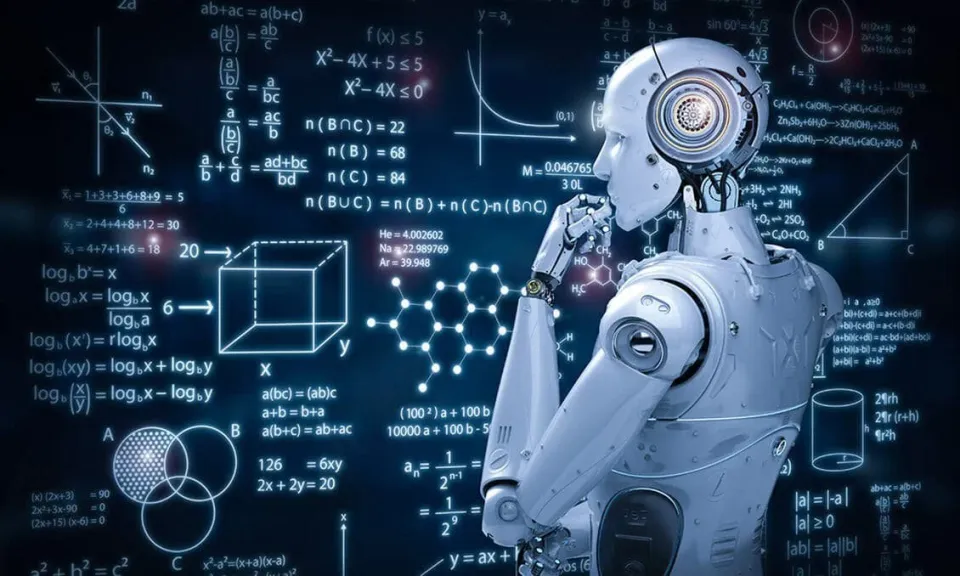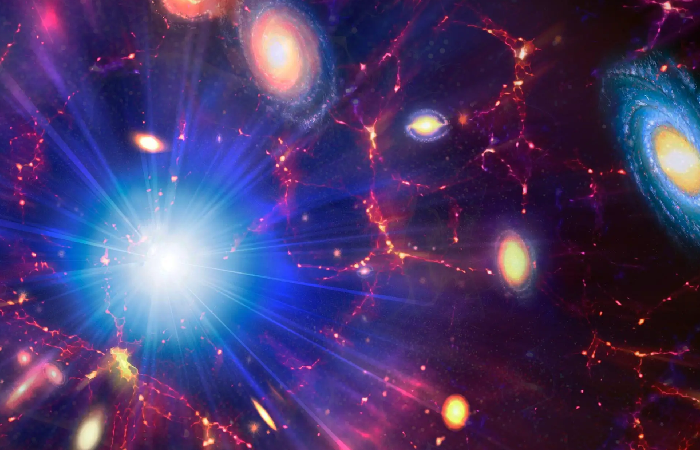The Singularity: What It Is and Why It Matters

The singularity is a concept that has been gaining attention in recent years, particularly in the field of artificial intelligence. It refers to a hypothetical point in the future where machines become more intelligent than humans, leading to a significant shift in the way we live and work. In this article, we'll explore what the singularity means, why it's a topic of discussion, and what its potential implications could be.
What is the Singularity?
In computational magic, the Singularity embodies a juncture where machines attain the aptitude to self-engineer and self-enhance. Arithmetic maestro John von Neumann initially put forth this notion and later gained traction through the literary works of science fiction connoisseur Vernor Vinge.
The Singularity, often portrayed as an "inescapable threshold," signifies a metamorphosis of our species, an irreversible evolution triggered by the skyrocketing prowess of computational abilities and other technological leaps.
Many individuals envision Singularity as the dawn of a techno-utopia, where human beings and technology amalgamate, culminating in eternal life. Contrarily, some apprehend the emergence of an artificial intellect transcending human cognition, potentially culminating in the destruction of humankind.
Debates swirl around the actualization and timing of the Singularity. Proponents argue it may materialize in the coming decades, while skeptics contend it remains centuries away. The precise outcome of the Singularity also garners differing perspectives. However, an unwavering truth prevails: Singularity marks a critical crossroads for humanity and our future fate hinges upon our readiness to embrace it.
The singularity is a concept in artificial intelligence that refers to the point in time when machines become more intelligent than humans and are able to evolve on their own. It is a slippery concept that has been discussed by visionaries like Stephen Hawking and Bill Gates. Singularities are also places where mathematics "misbehave" by generating infinitely large values. Some experts predict that the singularity will occur in the near future, while others believe it may never happen.

What are the different theories about the Singularity?
A kaleidoscope of conjectures surrounds Singularity, yet the predominant hypothesis posits it as a temporal milestone where artificial intellect transcends human brainpower, engendering profound societal shifts.
Specific individuals champion the Singularity as a propitious occurrence, catalyzing awe-inspiring technological and human progress, while others perceive potential calamity should AI spiral beyond control. The precise manifestation of the Singularity remains shrouded in spirited discourse, but it undeniably sparks an exhilarating realm of contemplation!
How could the Singularity impact humanity?
Unfamiliar with the Singularity? Envision a future juncture where technological metamorphosis unfolds with such swiftness and magnitude that it cleaves human chronicles. Esteemed computational savant Vernor Vinge elucidated:
"We shall possess the technological prowess to birth superhuman intellect in three decades. Then, soon after, the human epoch will cease."
Simply put, Singularity emerges as machines outstrip human cognizance, consequently commandeering the globe as we recognize it. Does this imply humanity's demise? Not explicitly. Some postulate that we shall assimilate with technology, evolving into cyborgs or digitized entities. Others maintain that human intellect will merely be eclipsed by mechanical sapience, rendering us antiquated.
Irrespective of the outcome, the Singularity's ramifications on humanity will be colossal. It's unfathomable to conceive of existence post this monumental deviation in our evolutionary arc. Yet, an unshakable certainty persists the Singularity approaches, poised to revolutionize all aspects of our lives.
The Singularity's advent has far-reaching ramifications for society. Should machines attain such intelligence that they exert control over government assets, internet function, e-commerce, etc., our societal frameworks may crumble or mutate dramatically. The Singularity's principal concern is its potential to trigger wholesale transformation.
It is impossible to envision the capacities of a superintelligent system, and experts assert that when the Singularity materializes, the end of humanity might very well be nigh. As per a paper published in The International Journal of Astrobiology, the Singularity's emergence could prove apocalyptic for humanity.
What are some potential risks of the Singularity?
There are a number of potential risks associated with the Singularity, including:
- The potential for technology to become uncontrollable or even malevolent.
- The possibility that human beings could become slaves to intelligent machines.
- The risk that the Singularity could lead to widespread unemployment as machines increasingly replace human workers.
- The potential for catastrophic accidents, as ever-more complex systems become ever more difficult for humans to understand and control.
What are some potential benefits of the Singularity?
A cornucopia of prospective boons accompanies the Singularity:
- Amplified efficacy and productivity: With machines operating at velocities surpassing human capabilities, time-consuming undertakings (e.g., fabrication or data scrutiny) shall reach fruition with exceptional enthusiasm. Society may anticipate augmented efficiency and productivity across all sectors.
- Responsible and precise decision-making: Unencumbered by emotional bias or subjective inclinations, machine intelligence shall render decisions with remarkable accuracy and reliability, surpassing human judgment. This metamorphosis stands to refine decision-making across societal domains, spanning commerce to governance.
- A comprehensive comprehension of the cosmos: As machine intellect burgeons, so will its grasp of the universe and its constituents. This knowledge explosion may unveil groundbreaking scientific and technological revelations, showering untold advantages upon humankind.

Conclusion
The Singularity embodies a crucial concept warranting our contemplation. The breakneck pace of technological progress ushers us into a new epoch of staggering transformations, both exhilarating and daunting.
It is incumbent upon us to ensure that these metamorphoses create prospects accessible to all, irrespective of social or economic strata. By comprehending the Singularity's import and persistently investigating its conceivable repercussions, we may greet this era with buoyancy, primed to seize a future replete with boundless potential.




